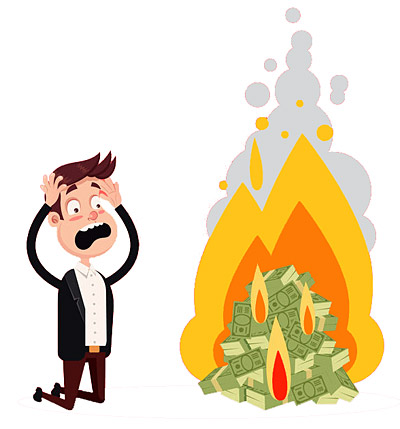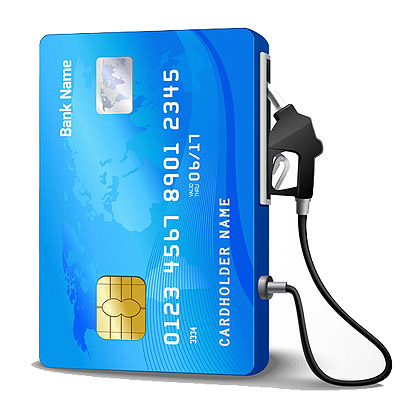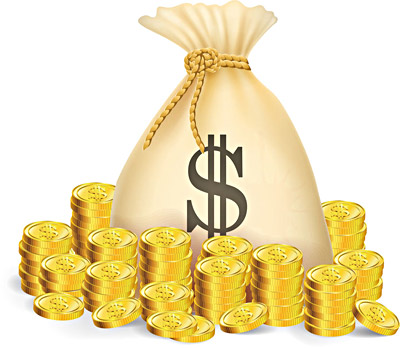
Taking Cash out of Enemy ATMs
If you’re taking cash out of ATMs, try to be smart about it and avoid as many service fees as possible. I’ve known friends to take out $20 or $40 bucks at a time and pay $3 – $4 in services charges. Completely crazy when you think about it. If you need to take cash out, try to take out larger amounts if you can and keep some cash at home in a hidden location, a safe, or somewhere secure if you have the means to. You’ll probably use it eventually and you’ll avoid paying every time you take it out. Better yet, use your own bank or credit union and find out which ATMs you can withdraw free at or at least the ones with the lowest fees. Another option is planning your cash withdrawals by using your debit card at the grocery store. It seems pretty elementary, but it’s amazing that we are all guilty of some of these basic mistakes from time to time.
Earning Nothing on Your Money
It drives me crazy when someone tells me they have a huge balance in their account they’ve saved up, only to find out it’s sitting in a chequing account earning almost 0.00% interest. You’re essentially loaning the bank free money. Make them pay to lend out your cash and choose an account with reasonable interest rates. These banks are making a killing charging us fees and INTEREST on our loans. Maybe your bank doesn’t offer great savings rates? To that, I’d say, “find one that does!”
Growing up it was hammered into my head every time I had some money saved up, “Where are your savings? Are they in your chequing account?” …And even if it was in a savings account, I would be quizzed on how much Interest it was earning and usually told where I could be earning more. With online banking now being so easy, it’s really not that much trouble to rate shop and move your money around to make sure you’re getting the best rates. Small amounts over time add up to literally tens of thousands of dollars.
Better yet even, Invest your money – you have a host of options from GIC’s to Bonds, Stocks and more… the main point though, is don’t let the banks use your money for free!
Not Paying Bills on Time
Pay your bills on time – period. This is another good habit to get into and will save you needless interest costs and late fees. Many companies charge the maximum allowable fees by law on overdue bills and on smaller bills like your utilities, it doesn’t always seem like much. The problem is that people who are late-payers are usually constantly late with bills and all that extra money adds up – in fact, could probably pay one of those bills. As an added bonus, your credit score will definitely thank you kindly for staying up to date with your regular payments.
Paying the Minimum Credit Card Payments
Never pay ONLY your minimum credit card balance if you can avoid it or have a choice. Credit cards carry some of the highest interest rates and you will be paying for all your purchases multiple times over if you stretch out the payments long enough. Some repayment plans were so bad the government had to introduce legislation that required credit card bills to clearly show the amount of time it would take to repay your current balance at the current re-payment rate.
I’ve worked for companies in the past that collected on outstanding credit card debts and many of the payment plans are not pretty. People making minimum payments to pay off small balances in the order of $2,000 – $3,000, which would literally take them a decade to pay off. Don’t purchase items you can’t afford on credit with the hope of paying the debt off slowly or down the road. What’s worse than a $2,000 TV that ends up costing you $3800? Minimum payments are for suckers.
Throwing Away Food
This is another big one many people are guilty of including me. When you go grocery shopping, think of all the perishable food items you purchase every week and how much of that food usually goes bad and ends up being thrown away before you eat it. It can be difficult for individuals living on their own to perhaps finish a whole loaf of bread before it goes stale, finish an entire carton of milk or eat all the fruit and vegetables you buy. That’s where meal planning and preserving comes in.
Planning your meals is one of the best ways to save money by purchasing only the foods you need and will be eating within the next week or so to avoid spoilage. Having a plan in place will definitely save you from purchasing items you intended to eat but never got around to.
Overpaying on Your Taxes
Some of us are thrilled to get a tax refund at the end of the year, who doesn’t like money back from the government, right?! And it’s better than owing the government – isn’t it? Well, not really. In fact, a refund generally arrives because you’ve overpaid on your taxes, which essentially means the government gets to collect the interest you would have. So pay what you owe, but try not to overpay!
Hopefully, some of these quick tips will help you save a little more throughout the year. Or at least give a few ideas where savings can be realized




Agree with all your points. I love my STACK card. Even used it in other countries without paying a fee to withdraw money from ATM. Anyone needs a referral? 🙂
I’ve never got a STACK card but they sound very useful, especially if you’re travelling and don’t want to worry about getting local currency out or conversion fees.